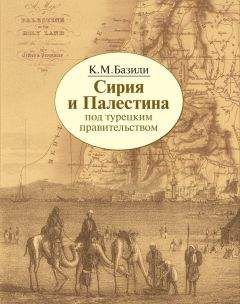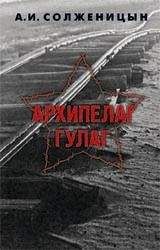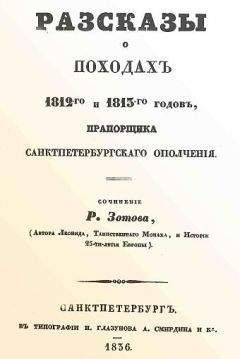Hammer J. von, Geschichte des Osmanischen Reiches, bd I–X, Pest, 1827–1835.
Harik I. F., Politics and Change in a Traditional Society Lebanon, 1711–1845. Princeton, 1968.
Hasselquist F. J. «Voyages dans le Levant dans tes années 1749, 50, 51 et 52… par Frédéric Hasselquist», Paris, 1769.
Hitty Ph. K., History of Syria including Lebanon and Palestine, New York, 1951.
Hitty Ph. K., The origins of the Druze people and religion with extracts from their sac red writings, New York, 1928.
Hitty Ph. K., Lebanon in history from the earliest times to the present, London, 1957.
Hopwood D., The Russian Presence in Syria and Palestine 1843–1914. Church and Politics in the Near East. Oxford, 1969.
Hourani A., Arabic Thought in The Liberal Age (1798–1939). London, 1962.
Hourani A., A History of the Arab Peoples. Cambridge, Massachusetts, 1991.
Houry С. В., De la Syrie considérée sous le rapport commercial, Paris, 1842.
Hunter W. P., Narrative of the expedition to Syria under the command of admiral the Hon. Sir Robert Stopford, comprising an account of the capture of Gebail, Tripoli and Tyre; storming of Sidon; battle of Calat-Meidan, bombardment and capture of St. Yean dAcre etc., vol. I–II, London, 1842.
Jonquiere de la, Histoire de l’Empire Ottoman depuis les origines jusqu’à nos jours, vol. I–II, Paris, 1914.
Ismail Adel, Histoire du Liban de XVII siecle a nos jours. T I. Beyrouth, 1955; T IV Beyrouth, 1958.
Issawi Ch., The Fertile Crescent, 1800–1914. New York/Oxford, 1988.
Juchereau de Saint-Denys, Histoire de l’Empire Ottoman depuis 1792 jusqu’en 1844, I–IV, Paris, 1844.
[Laborde A. de] Voyage en Orient (Asie Mineure, Syrie, Palestine), par Alex. de Labarde (1828–1829), rédigé par L. de Laborde, vol. I–II, Paris, 1837–1838.
Lammens H., La Syrie. Précis historique, vol. I–II, Beyrouth, 1921.
Laoust H., Les gouverneurs de Damas sous les mamlouks et les premiers ottomans (658–1156/1260–1744) traduction des annales d’ibn Tulun el d’ibn Gum’a, Damas, 1952.
Laurent A., Relation historique des affaires de Syrie, depuis 1840, jusqu’en 1842; statistique générale du Mont-Liban, I.I, Paris, 1846.
Leeuwen R. van. Notables and Clerge in Mount Lebanon. The Khazin Sheikhs and the Maronite Church (1736–1840). Leiden/New York/Koln, 1994.
Lockroy Ed, Ahmed le Boucher. La Syrie et l’Egypte au XVIII-e siècle, Paris, 1888.
Ma’oz M., Ottoman Reform in Syria and Palestine, 1840–1861. The Impact of the Tanzimat in Politics and Society. Oxford, 1968.
Marcus A., The Middle East on the Eve of Modernity. Aleppo in the Eighteenth Century. New York, 1989.
Masson P., Histoire du commerce français dans le Levant au XVIII-e siècle, Paris, 1611.
Maundrell H., Voyage d’Alep à — Jérusalem à Pâques en l’année 1697, Utrecht, 1705.
Michaud J. F. et Poujoulat J. E., Correspondances d’Orient, vol. I–VII, Paris, 1833–1835.
[Monconys] «Journal des voyages de monsieur de Monconys, conseiller du Roy en ses Conseils d’Etat… publié par le sieur de Liergues, première partie voyage de Por tugal, Provence, Italie, Egypte, Syrie, Constantinople et Natolie», Lyon, 1665.
Nahoum (Haim Effendi), Recueil des firmans impériaux ottomans adressés aux valis et aux khédives d’Egypte. 1006–1322 H (1597–1904), Le Caire, 1934.
Napier Ch., The war in Syria, vol. I–II, London, 1842.
Neale F. A., Eight years in Syria, Palestine, and Asia Minor, from 1842 to 1850, vol. I–II, London, 1851.
Ohsson, M d’, Tableau général de l’empire ottoman, t. 1–7, Paris, 1788–1824.
Pellé Cl. et Galibert L., Voyage en Syrie et dans l’Asie Mineure, illustré par cent-vingt magnifiques gravures sur acier…, Paris, 1840.
Pièces communiquées à la chambre des députés sur les affaires du Liban pendant les années 1843, 1844, 1845, Paris, 1846.
Perrier F., La Syrie sous ie gouvernement de Méhémet-Ali jusqu’en 1840, Paris, 1842.
[Pockocke R.] «Voyages de Richard Pockocke, membre de la société royale, et de celle des Antiquités de Londres etc. en Orient, dans l’Egypte, l’Arabie, la Palestine, la Syrie, la Grece, la Thrace, etc.», t. 1–6, Neuchatel, 1772–1773.
Poliak A. N., Feudalism in Egypt, Syria, Palestine and the Lebanon, 1250–1900, London, 1939.
Polk W. R., The Opening of South Lebanon, 1788–1840. A Study of the Impact of the West on the Middle East. Cambridge, 1963.
Poujade E., Le Liban et la Syrie 1845–1860, Paris, 1867.
Rabbath (Le père Antoine) et Toumebize (Le père François), Documents inédits pour servir a l’histoire du Christianisme en Orient. (XVIe-XIXe siècle), vol. 1–6, Beyruth, Paris, 1905–1921.
Rafeq A. K., The Province of Damascus, 1723–1783. Beirut, 1966.
[Raguse, maréchal] «Voyage du maréchal due de Raguse en Hongrie… dans quelques parties de l’Asie-Mineure, en Syrie, en Palestine et en Egypte», vol. 1–5, Paris, 1837–1839.
Robinson G., Voyage en Palestine et en Syrie, vol. I–II, Paris, 1838.
Roque de la, Voyage de Syrie et du Mont-Liban, I.I–II, Amsterdam, 1723.
Rousier L., Voyage à la Terre-Sainte, Monuments moeurs, usages de l’Egypte, de la Sy rie, de la Palestine, Paris, 1844.
Röhricht R., Bibliotheca geographica Palaestinae. Chronologisches verzeichniss der auf die Geographie des Heffigen Landes Bezüglichen Literatur von 333 bis 1878, Berlin, 1890.
Sabry M., L’Empire égyptien sous Mohammed-Ali et la question d’Orient (1811–1849), Paris, 1930.
Salle E. de, Pérégrinations en Orient ou voyage pittoresque, historique et politique en Egypte, Nubie, Syrie, Turquie, Grèce pendant les années 1837–38–39, vol. I–II, Paris, 1840.
[Salvator Lusingnan] «A Genuine voyage to Smyrna etc., a minute detail of the present state of Jerusalem made during a three years’ residence in that city with a relation of the pilgrim’s journey to the Holy land by S. Lusingnan», vol. 1–2, London, 1801.
Schatkowski-Schilcher L., Families in Politics: Damascene Factions and Estates in 18-th and 19-th Centuries. Stuttgart, 1985.
Scholl H. F., Abriss der Geschichte des Krieges 1840–41 in Syrien, Wien, 1866.
Temperley H., England and the Near East, The Crimea, London, 1936.
Testa J. (baron de), Recueil des traités de la Porte Ottomane avec les puissances étrangères depuis le premier traite conclu en 1536… jusqu’à nos jours, vol. 1–4, Paris, 1892–1894.
[Thévenot J. de] «Relation d’une voyage fait au Levant… par M. de Thévenot», vol. I–II, Parts, 1664.
Thévenot J. de, Suite du voyage de Levant, Paris, 1674.
Tibawi A. L., British Interests in Palestine, 1800–1901. Paris, 1961.
Ubicini M. A., Lettres sur la Turquie ou tableau statistique, religieux, politique, administratif, militaire, commercial, etc. de l’ empire ottoman, depuis le Khatti-Cherif de-Gulkkané (1839), p. I–II, Paris, 1853–1854.
Urquhart D., The Lebanon (Mount Souria). A history and a diary, vol. I–II, London, 1860.
Verney N. et Dambmann G., Les puissances étrangères dans le Levant en Syrie et en Palestine, Paris, 1900.
Vingtrinier A., Soliman-Pacha-colonel Sève-Généralissime des armées égyptiennes ou histoire des guerres d’Egypte de 1820 à 1860, Paris, 1886.
Volney F., Voyage en Syrie et en Egypte, vol. I–II, Paris, 1787.
Widenmann Ed., Acht Wochen in Syrien. Ein Beitrag zur Geschichte des Feldzuges 1840, Stuttgart, 1841.
Wood A. C., A history of the Levant company, Oxford, 1935.
Терминологический словарь
Ага-паша (тур.) — начальник янычарского корпуса.
Акал (от араб. акыл — умный, знающий) — религиозные руководители друзов. Акалы считались людьми «посвященными» и обладающими религиозным «знанием».
Аман (араб.) — покровительство, оказываемое мусульманским правителем или крупным феодалом населению (чаще христианскому).
Ансарии — нусайриты, также алавиты — шиитская секта.
Арабистан-ордусу, Арабистан-ордусы* — Аравийский корпус.
Аян (араб.) — знатные лица, феодалы.
Бакалум (тур.) — «посмотрим!»
Бакшиш (перс.) — «чаевые».
Башибузуки — название отрядов иррегулярной турецкой пехоты, получавшей от правительства оружие и продовольствие и не состоящей на жалованье.
Бей (тур.), бек (араб.) — правитель санджака Османской империи. В XIX в. этот титул давался старшим офицерам и чиновникам.
Бейлик (тур.) — административная единица в Османской империи.
Бейликчи (тур.) — чиновник в султанском диване, подведомственный Министерству иностранных дел Османской империи.
Бейт аль-маль (араб.) — управление по выморочным имуществам.
Беяз (тур.) — белый.
Бунчук — конский хвост на пике; у турок знак власти и сана пашей (однобунчужный, двухбунчужный и трехбунчужный паша).
Буюрульды (тур.) — распоряжение, приказ Порты или губернатора.
Вакф (араб.) — имущество, завещанное на благотворительные цели, движимое и недвижимое имущество, освобожденное от налогов, доходы с которого поступают в пользу мусульманского духовенства.
Валиде-султанша (тур.) — титул матери султана.
Ваххабиты (веххабиты) — последователи религиозно-политического учения, возникшего в Неджде в конце XVIII в.
Везир (арабо-перс.) — высший правительственный сановник в Османской империи и других странах Ближнего и Среднего Востока.
Векиль (араб.) — доверенное лицо, выбираемое христианским населением; в его обязанности входила защита интересов своих единоверцев.
Великий везир — глава государственного управления в Османской империи.
Вергы (тур.) — подушный налог, введенный в Сирии в начале 40-х годов XIX в., взимавшийся со всего населения независимо от вероисповедания; с 1858 г. превратившийся в налог, взимаемый с движимого и недвижимого имущества.
Гази (араб.) — мусульманский «борец за веру».
Гяур (тур.), арабский синоним «кафир», — в мусульманских странах презрительное название немусульманина.
Дели (тур.) — название иррегулярных кавалерийских частей в турецкой армии, выполнявших функции сторожевых войск.
Дервиш (перс.), арабский синоним «факир», — мусульманский монах, приверженец суфизма.
Деребей (тyp.) — феодальный владетель.
Дефтердар (тур. — перс.) — чиновник финансового ведомства в Османской империи.
Джахил (араб.) — рядовые друзы и светские феодалы, не пользующиеся религиозным авторитетом (в противоположность акалам).
Джереме (тур.) — штраф, взимаемый феодалом или чиновником за различные провинности.
Джизья (араб.) — подушная подать, позже — поземельный налог.





